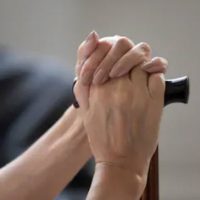How To Recognize Elder Abuse

Abuse can be hard to spot, and that is particularly true for the elderly. The elderly are especially vulnerable to abuse, and sadly, it often occurs at the hands of those who they are most reliant on. Legally, elder abuse occurs when an individual over 60 years of age is neglected or harmed. Elderly people who are experiencing abuse are often too embarrassed to talk about it, or they may not have anyone to confide in. This is often the case when elderly adults are being abused in their assisted living facilities or by their caretakers. Isolation is a common symptom of elder abuse for this reason. This can be engineered intentionally by the abuser, who benefits from having their victim insulated from anyone in their life who could help them. However, it can also be a result of shame and depression caused by the abuse.
Types of Elder Abuse
Although bruises, bed sores, and physical sores are important to look for and can be significant and concerning indicators of abuse, elder abuse can extend far beyond these tell-tale signs. Giving medication to elderly adults that they were not prescribed, recurrent injuries, and sexually transmitted diseases are just a few. Additionally, emotional abuse can have a severe psychological impact on elderly individuals, they may begin acting frightened or withdrawn, having behavioral changes, be depressed, confused, or stop sleeping. Financial abuse is also prevalent in the elderly community. Red flags include missing financial statements, withdrawals or missing prized possessions that can’t be explained, unpaid bills or shut off utilities, and forged signatures.
Neglect is another form of abuse. Neglect can be inferred from bed sores, a lack of hygiene, weight loss, skin rashes, unkempt hair, missing dentures, walkers, hearing aids, or other necessary medical equipment. If you are noticing signs of neglect, and your loved ones’ caretaker is making it harder to access them, this is a sign that should be taken very seriously, as they may be trying to isolate your loved one in order to conceal their abuse.
How to Help
If you have noticed changes in an elderly loved one it’s important to address them. Start by trying to talk to your loved one, however, also understand that they may be unwilling or unable to open up. If you suspect abuse, it’s important to contact Adult Protective Services in their state so that they can investigate. If you have evidence of abuse, you can file charges with the police to begin criminal proceedings. You can also bring civil charges against the facility or individual responsible for the abuse by filing a personal injury lawsuit. An experienced personal injury lawyer can help you file a lawsuit and build the strongest possible case to get retribution for the harm caused. A successful lawsuit can allow your loved one to collect damages for all financial, physical, and emotional harm caused by the abuse. This includes compensation for all medical costs related to the harm, as well as for the mental and physical trauma caused by the abuse. In some cases, punitive damages may also be appropriate. These damages are awarded in cases where the abuse was particularly egregious, such that the court would want to discourage it.
Talk to a Lawyer
If a loved one has been harmed, contact the experienced San Jose elder abuse attorneys at Costanzo Law today for a personalized consultation.
Resource:
nia.nih.gov/health/infographics/spotting-signs-elder-abuse
